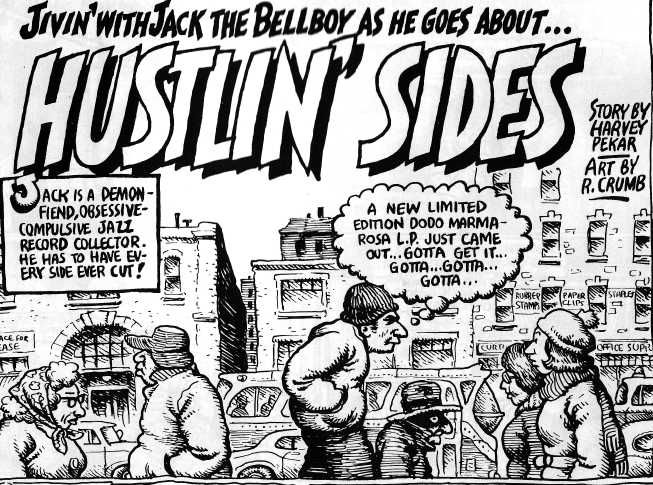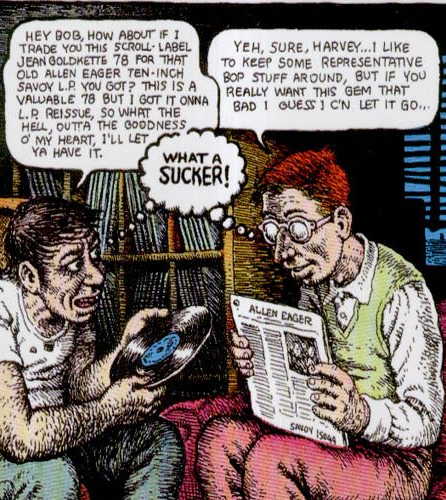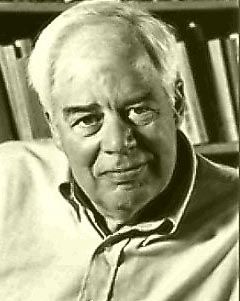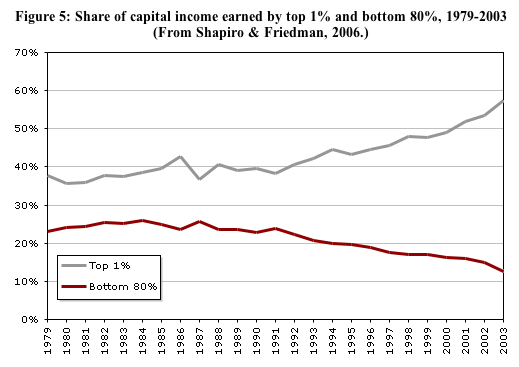
Harvey Pekar, Cleveland literary illuminary – October 8, 1939 – July 12, 2010
I first noted Harvey retrospectively, after he visited the record store I worked at, when my boss identified him as Harvey Pekar, with, something along the lines of, ‘notable crank and local jazz freak.’ At this, I realized I had seen Harvey a bunch of times, at DISC Records downtown, and on Coventry, the bohemian culture capital of Cleveland circa 1968-1974. In other words, he was a familiar face to me. Later, I asked my friend and blues mentor Bill about Harvey. He filled in a few notable details, such as, he was a world class jazz hipster, diffident, and, proudly working class.
As it transpired, Harvey was the main force that set my course as a jazz head. He filled my sails over the course of three encounters at Music Madness on Lee Road in Cleveland Heights between 1973 and 1974. I doubt the three encounters lasted more than a total of ten minutes. I wish I could remember the verbatim exchanges. I can’t, but here’s my actively imagined recollection.
Some background is necessary. At the time I was assistant manager of a record store in Cleveland Heights, Ohio. I was 19, very long-haired, and very observant but also callow. The store itself focused on the hippie and prog music of the day. We maintained one row of jazz records. However, since I started working there in 1971, the co-owner–my boss–had exposed me to a few choice records, and foremost among these several classics was Miles Davis’s In A Silent Way and Tribute to Jack Johnson. Still, I knew not much more than zero about jazz. At the time, the paragons of virtuosity in my expanding musical world were Earl Scruggs, Duane Allman, Sneaky Pete Kleinow, Clarence White, and, B.B. King.

Well, You Needn’t – No. 1 (probably happened in the Winter 1973)
Harvey came into the store infrequently. There really wasn’t much of a reason for a jazzer to come into the store. However, on this visit he plucked an Audio Fidelity reissue of a Black Lion Monk session out of the single row of records and walked it up to the counter. I was familiar with Monk from a promo in our listening rack.
Me: Ahh, Monk, I like Monk.
Harvey: Yeah, well this is late Monk. Past his prime. But, Monk is worth investigating every last note.
Me: I’ll check it out.
Harvey: Sure. It’s too bad his Blue Notes come in and out of print. You know I’ve got good connections and hear what’s going on because I’m a writer and write about jazz. I hear that Capitol is preparing to reissue some of the classic Blue Note sides…
Me: Blue Note?
Harvey: Blue Note is a jazz label, past its prime too. It’s a goldmine. You should do your self a favor and keep an eye out for Monk’s Blue Note sides. Forties, nineteen forties. Essential. Bop some would say, but listening to Monk in the forties is listening to the first genius to move beyond bebop. You know bebop, right?
Me: Sure, Charlie Parker, Dizzy.
Harvey: Gotta go.
(note–I would have discovered Monk eventually, yet Harvey’s hot tip zeroed in on music that would comprise my top most desert island selection. In fact, when the Blue Notes were reissued, as Harvey said it would happen, in 1976, I listened to the twofer’s LP over and over and over. Monk came to be my top guy, comes to be the only religion I’m affiliated with.)
The Real Shit – No. 2 (definitely in the early Spring, 1974)
(Kind of Blue is playing on the turntable. Harvey walks in. He fingers the jazz rack, walks over.)
Harvey: Miles Davis. I’m going to tell you something.
Me: Miles, man, I love this stuff.
Harvey: You like this, huh?
Me: Yeah. I like Jack Johnson the best.
Harvey: Oh. Too bad you can’t really check the real shit.
Me: What?
Harvey: Kind of Blue has the reputation. Best jazz record ever? It’s not even the best Miles. Well, it’s not my favorite Miles. You know Coltrane?
Me: Yup.
Harvey: I dunno. Kind of Blue. No, it’s the Prestige records starting in 1955; Coltrane, Garland, Chambers, Philly Joe Jones. You don’t know those guys, right.
Me: Well,
Harvey: Besides Coltrane. They do a song, in 1957, Diane. Oh, it’s all brilliant.
Me: The store should get some.
Harvey: Those sides are being reissued soon. I’ll help you out, get them all.
(He walks over to the jazz bin and pulls out a Trip reissue of Max Roach and Clifford Brown.)
Harvey: You need to realize the history of jazz goes back to before the twenties. Everything has its heritage. Miles Davis, Clifford Brown, and then you have to go back and dig Fats Navarro, and, back to Eldridge. and back to Armstrong. And, then you have to cover people nobody knows about like Shorty Baker.
(He stops, mildly shakes his head.)
Me: I get what you’re saying.
Harvey: You’ll get it, sometime, after you put the time in.
Point Omega – No. 3 (definitely in the late Spring, 1974)
(Harvey walks in and heads to the jazz rack, fingers through it part way, and then notices a record displayed on the pegboard. He lifts it up and out of its holder and walks over to the counter.
Harvey: This is incredible.
Me: What?
Harvey: You have no idea how rare these sides are. This record isn’t rare.
Me: Huh?
Harvey: I mean this LP contains really rare music from Art Pepper. Until now you;d have to hunt for them and probably you wouldn’t find them.
Me: Okay!
Harvey: You don’t know Art Pepper. I don’t even know why this record is here. Art Pepper is an alto saxophonist–is this white cat with a ton of soul. He sort of takes off from Yardbird, You don’t know Pres, Lester Young.
Me: No.
Harvey: hmmph. Anyway, it’s useless to sound just like somebody else. Art found his own sound and, man, all his great records are collector’s items. This is a goldmine, this one right here. Ring me up. How much?

Less than a month later a holdup dude walked into the store and shot me in the back while I lay on the floor of the rear office. I escaped to Vermont, yet I held onto Harvey’s advisories. Sure enough, and soon enough, those Prestige and Blue Note twofers came rolling into my hands and life. All those rare Pepper’s ended up reissued and not so rare. They’re glorious. And, I spent the next fifteen years playing catch-up to all that glowing history.
A history, about which, Harvey was on the money.
There’s a funny last encounter to tell about. I returned to Cleveland in 1992, and by 2000 I was once again managing a record store in Cleveland Heights. Harvey never walked into the store, however I did happen upon him at the local post office. This was probably in 2000, so this moment came 26 years after Point Omega.
He was leaving and I was coming. I recognized him and turned around and curved my head around his shoulder. He wouldn’t stop walking after I announced,
“Harvey Pekar, I know you from what you told me years ago in a record store near here.”
“I don’t know you. What record store?”
“It was called Music Madness. It was next to the old post office.”
I’m still walking with him as we go through the front door, out toward the parking lot.
“Umm, yeah, I remember a record store there, but I don’t remember you.”
At which point I broke away, chuckling.
Dub Collision mix, Blues for Harvey Pekar, available at nogutsnoglorystudios. Here’s a taster.
[audio:http://www.squareone-learning.com/audio/Blues-for-Pekar-taste.mp3]












